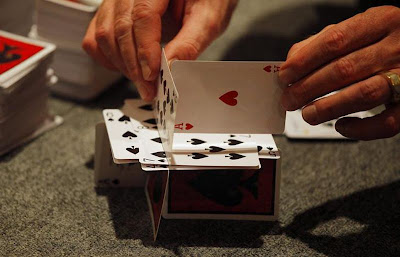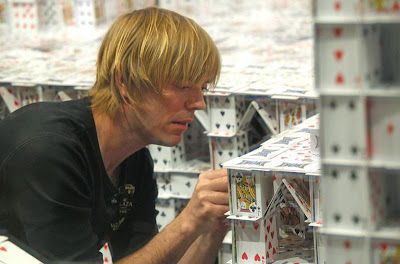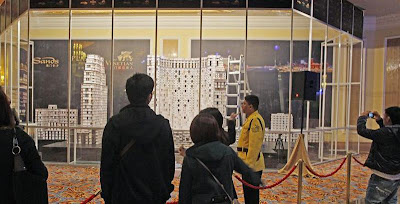
Lions at the SanWild sanctuary in Limpopo province, South Africa. Photograph: SanWild
Sixteen lions on a South African game reserve are facing death because of a shortage of funds to feed them, it emerged today.
The SanWild sanctuary, in Limpopo province, has issued an urgent appeal for donations to save the three prides of 14 adults and two cubs.
Officials have warned that if the sanctuary cannot meet the 45,000 rand (£4,000) monthly cost of meat to keep the lions healthy it will be forced to have them put down them ‑ possibly as soon as next month.
"The situation on the ground for our lions is dire and, unless we can urgently find sponsorship, the lions will have to be put down," Louise Joubert, founder trustee of SanWild, said. "We find ourselves in a difficult situation. We can't allow them to start starving. We would rather euthanise them than let them end up as a trophy on some hunter's wall."
The eight males and eight females have lived at the sanctuary, near Tzaneen, since 2003 and 2004 after being rescued from the canned hunting industry in which animals are usually bred in captivity to be hunted in a confined space.
Each pride now lives in a six-hectare (15-acre) enclosure. Each animal requires 4-5kg of meat per day and would be unable to fend for itself in the wild. All the males have been sterilised to prevent breeding.
"They are stunning lions," Joubert said. "But last year, due the worldwide recession, we really battled to get funding for them. We've managed to keep them going until the end of March, but we're really desperate to get people to adopt the lions or provide sponsorship on a monthly basis. Small donations do make a difference."
She said SanWild was bringing a court case against the South African government next week over what it claims are broken promises of financial support.
The South African courts are reviewing rules that could effectively ban the canned hunting industry, which kills an estimated 1,000 lions per year.
However, such a move would raise the prospect of thousands of lions being put down because they cannot be released into the wild and there are insufficient resources to protect them in parks or reserves.
Yolan Friedmann, chief executive of the Endangered Wildlife Trust in South Africa, who supports the ban, said: "This is the question on everyone's minds. Three to four thousand lions would need to be put in a free range reserve, but here we are struggling with 16."
VAI :-
guardian 



















 Bugatti Veyron $1,700,000. This is by far the most expensive street legal car available on the market today. It is the fastest accelerating car reaching 0-60 in 2.6 seconds. It claims to be the fastest car with a top speed of 253 mph+. However, the title for the fastest car goes to the SSC Ultimate Aero which exceed 253 mph pushing this car to 2nd place for the fastest car.
Bugatti Veyron $1,700,000. This is by far the most expensive street legal car available on the market today. It is the fastest accelerating car reaching 0-60 in 2.6 seconds. It claims to be the fastest car with a top speed of 253 mph+. However, the title for the fastest car goes to the SSC Ultimate Aero which exceed 253 mph pushing this car to 2nd place for the fastest car. Lamborghini Reventon $1,600,000. The most powerful and the most expensive Lamborghini ever built is the second on the list. It takes 3.3 seconds to reach 60 mph and it has a top speed of 211 mph. Its rarity (limited to 20) and slick design are the reasons why it is so expensive and costly to own.
Lamborghini Reventon $1,600,000. The most powerful and the most expensive Lamborghini ever built is the second on the list. It takes 3.3 seconds to reach 60 mph and it has a top speed of 211 mph. Its rarity (limited to 20) and slick design are the reasons why it is so expensive and costly to own. McLaren F1 $970,000. In 1994, the McLaren F1 was the fastest and most expensive car. Even though it was built 15 years ago, it has an unbelievable top speed of 240 mph and reaching 60 mph in 3.2 seconds. Even as of today, the McLaren F1 is still top on the list and it outperformed many other super cars.
McLaren F1 $970,000. In 1994, the McLaren F1 was the fastest and most expensive car. Even though it was built 15 years ago, it has an unbelievable top speed of 240 mph and reaching 60 mph in 3.2 seconds. Even as of today, the McLaren F1 is still top on the list and it outperformed many other super cars. Ferrari Enzo $670,000. The most known supercar ever built. The Enzo has a top speed of 217 mph and reaching 60 mph in 3.4 seconds. Only 400 units were produced and it is currently being sold for over $1,000,000 at auctions.
Ferrari Enzo $670,000. The most known supercar ever built. The Enzo has a top speed of 217 mph and reaching 60 mph in 3.4 seconds. Only 400 units were produced and it is currently being sold for over $1,000,000 at auctions. Pagani Zonda C12 F $667,321. Produced by a small independent company in Italy, the Pagani Zonda C12 F is the 5th fastest car in the world. It promises to delivery a top speed of 215 mph+ and it can reach 0-60 in 3.5 seconds.
Pagani Zonda C12 F $667,321. Produced by a small independent company in Italy, the Pagani Zonda C12 F is the 5th fastest car in the world. It promises to delivery a top speed of 215 mph+ and it can reach 0-60 in 3.5 seconds. SSC Ultimate Aero $654,400. Don't let the price tag fool you, the 6th most expensive car is actually the fastest street legal car in the world with a top speed of 257 mph+ and reaching 0-60 in 2.7 seconds. This baby cost nearly half as much as the Bugatti Veyron, yet has enough power to top the most expensive car in a speed race. It is estimated that only 25 of this exact model will ever be produced.
SSC Ultimate Aero $654,400. Don't let the price tag fool you, the 6th most expensive car is actually the fastest street legal car in the world with a top speed of 257 mph+ and reaching 0-60 in 2.7 seconds. This baby cost nearly half as much as the Bugatti Veyron, yet has enough power to top the most expensive car in a speed race. It is estimated that only 25 of this exact model will ever be produced. Saleen S7 Twin Turbo $555,000. The first true American production certified super car, this cowboy is also rank 3rd for the fastest car in the world. It has a top speed of 248 mph+ and it can reach 0-60 in 3.2 seconds. If you are a true American patriot, you can be proud to show off this car.
Saleen S7 Twin Turbo $555,000. The first true American production certified super car, this cowboy is also rank 3rd for the fastest car in the world. It has a top speed of 248 mph+ and it can reach 0-60 in 3.2 seconds. If you are a true American patriot, you can be proud to show off this car. Koenigsegg CCX $545,568. Swedish made, the Koenigsegg is fighting hard to become the fastest car in the world. Currently, it is the 4th fastest car in the world with a top speed of 245 mph+, the car manufacture Koenigsegg is not giving up and will continue to try and produce the fastest car. Good luck with that!
Koenigsegg CCX $545,568. Swedish made, the Koenigsegg is fighting hard to become the fastest car in the world. Currently, it is the 4th fastest car in the world with a top speed of 245 mph+, the car manufacture Koenigsegg is not giving up and will continue to try and produce the fastest car. Good luck with that! Mercedes Benz SLR McLaren Roadster $495,000. A GT supercar, the SLR McLaren is the fastest automatic transmission car in the world with a top speed of 206 mph+ and reaching 60 mph in 3.8 seconds. It is a luxurious convertible with a really powerful engine, which results in outstanding performances and style.
Mercedes Benz SLR McLaren Roadster $495,000. A GT supercar, the SLR McLaren is the fastest automatic transmission car in the world with a top speed of 206 mph+ and reaching 60 mph in 3.8 seconds. It is a luxurious convertible with a really powerful engine, which results in outstanding performances and style. Porsche Carrera GT $440,000. A supercar with dynamic stability control and a top speed of 205 mph+ and it can reach 0-60 in 3.9 seconds. The Porsche Carrera GT applies the absolute calibers of a true racing car to offer an unprecedented driving feeling on the road.
Porsche Carrera GT $440,000. A supercar with dynamic stability control and a top speed of 205 mph+ and it can reach 0-60 in 3.9 seconds. The Porsche Carrera GT applies the absolute calibers of a true racing car to offer an unprecedented driving feeling on the road.

























